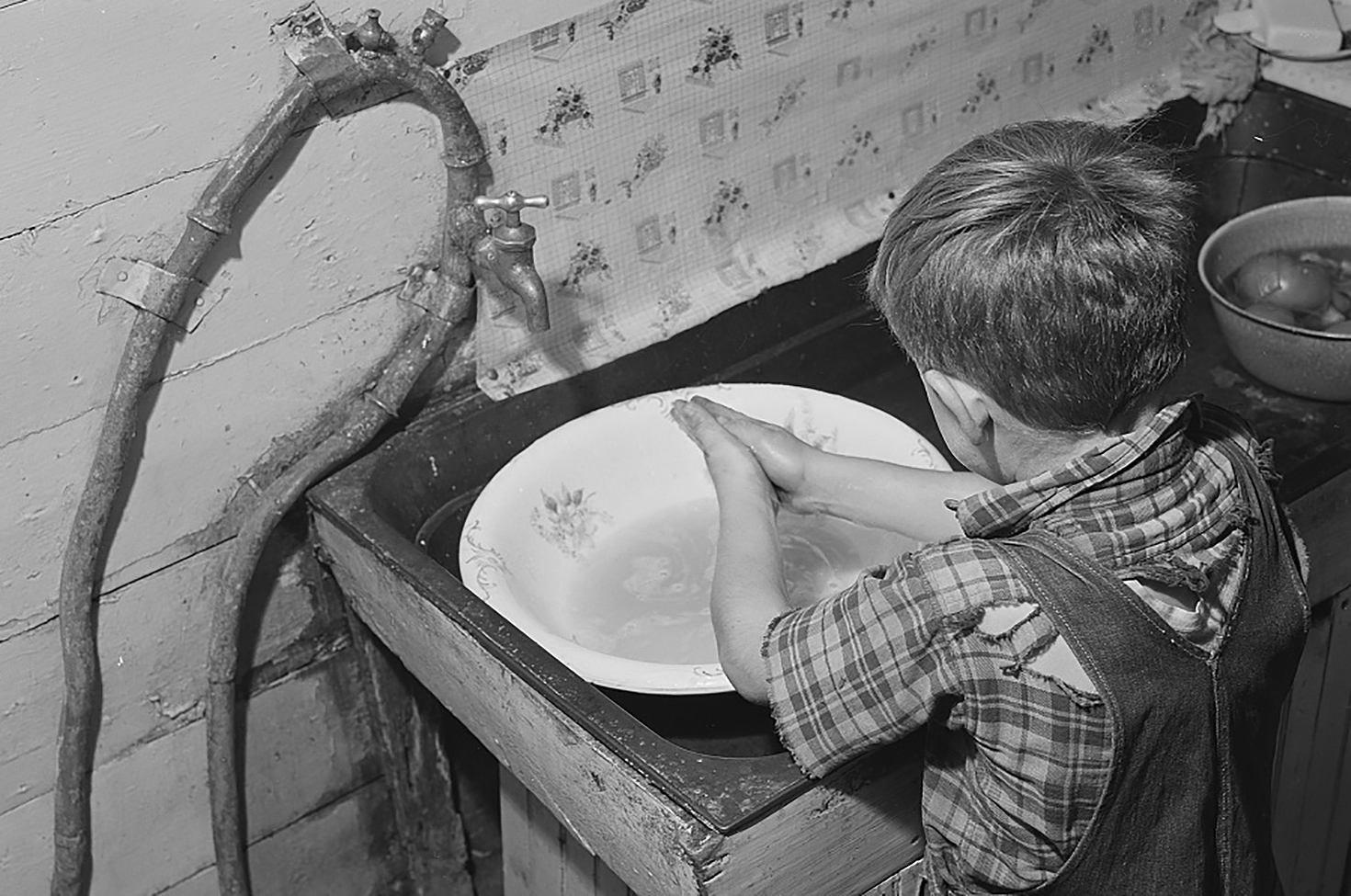
Dicky Gaynor washing his hands on his farm near Fairfield, Vermont, 1941. Photograph by Jack Delano. Library of Congress, Prints and Photographs Division.
• Historical context to read while social distancing: revolutionary times, revolutionary moments, the 1957 flu, washing hands, disaster baby booms, Oberammergau, and the politics of pandemic.
• An oral history of the Chicago chapter of ACT UP. (Chicago)
• Remembering Mamma Desta, the woman responsible for the Ethiopian restaurant boom in the U.S. (Vox)
• On believing in witches. (Journal of the History of Ideas Blog)
• A new frame for Mecklenburgh Square, which “itself might hold within its history a female tradition of exactly the sort Woolf was looking for.” (Literary Hub)
• On economic inequality after the Civil War. (Time)
• “Why did a predominantly black district have streets named after Southern generals?” (1843)
• “The Woman Who Lives Two Hundred Thousand Years in the Past.” (Outside)
• On Henry Moseley. (Distillations)
• Six ways to help archivists and librarians right now. (Atlas Obscura)
• “Just like it is both true and not true that L’Ouverture led the Haitian people to independence; and that the masses of enslaved and formerly enslaved people—most of whose names we will never know, simply because they never got the chance to be recorded—did so as well. Who is and who can ever be a good historian when so many storytellers have been lost?” (Public Books)
• This week in obituaries: Bill Withers, John Prine, Ahmed Ismail Hussein, Patricia Bosworth, Hal Willner, Anita Fial, Aileen Baviera, Linda Tripp, Ira Einhorn, Cristina Monet Zilkha, David Driskell, Marguerite Derrida, E. Margaret Burbidge, Honor Blackman, Idelle Weber, the Marquess of Bath, and Mort Drucker.